Dante Gabriel Rossetti
¡@
|
|
|
|
¡@
-
Rossetti's images of women
-
Rossetti and his patrons
-
Rossetti's influence on Munch
1. Rossetti's images of women (1. The
Lady of Shalott and his medieval sources; other
images of Shalott)
¡@ |
|
1. Medievalism & death
"Not only the poses of the principal figures but also the water in
the background and the crowd of onlookers in the final version echo the
organization of the fourteenth-century illustration (see below).
In using this as a source, Rossetti, in effect, went one step further than
Tennyson in authenticity, as Tennyson's main soucre was Malory's book,
first printed ...in 1485" (Faxon 92-93).
2. personal significance
"...the knight is shown gazing at the dead Lady of Shalott, just as
Rossetti would gaze at beauty, especially feminine beauty, and transform
it into art" (Faxon 93)
*Why dead beauty but not a lively one? ¡@ |
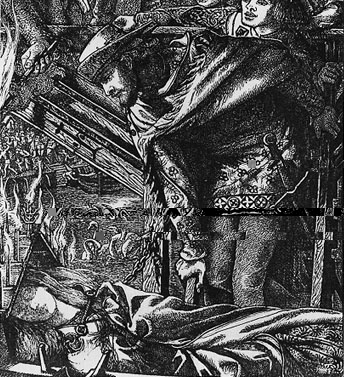
Dante Gabriel Rossetti, The Lady of Shallott, 1857
Wood engraving, 35/16 x 31/16 in.
Victoria and Albert Museum, London
¡@ |
|
|
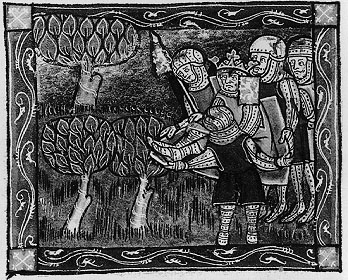
Lancelot du Lac, (Folio 65v, Add MS 10294), c.
1316-20
The British Library, London |
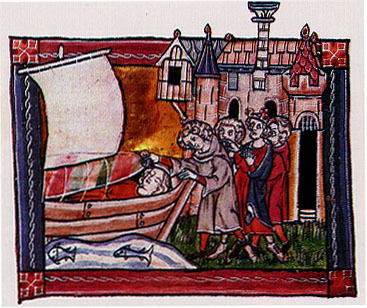
Lancelot du Lac, (Folio 91v, Add MS 10294), c.
1316-20
The British Library, London |
|
¡@
2. the spiritual
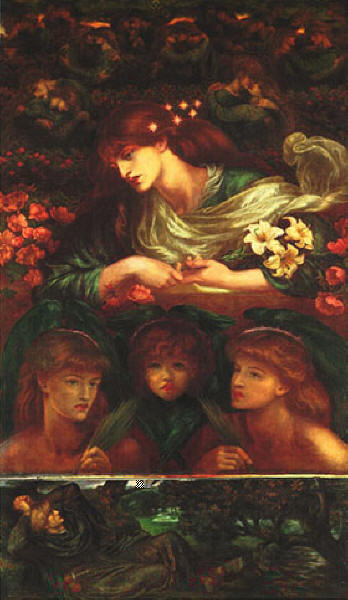
|
3. the use of frames
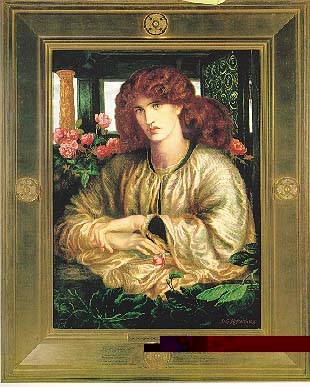
Above La Donna Della Finestra,
1879
DGR's late work "Rosseti himself consider this his
best work" (27)
¡@
Left
Dante Gabriel Rossetti, The Blessed Damozel,
1875-78
Oil on canvas, 68 1/2 x 37 in
The Harvard University Art Museum (with Alice Wilding
as the model for the Damozel)
|
| ¡@ 3. the Fleshly
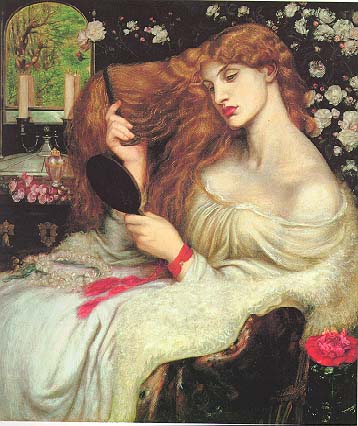
"Rossetti use Lilith to represent the 'Body's Beauty,'
in contrast to the Soul's Beauty' of Sibylla Palmifera. ...
Lilith was Adam's first wife--a seductress and demon woman who gave birth
only to devils and who wanted equal rights in everything" (203)
|
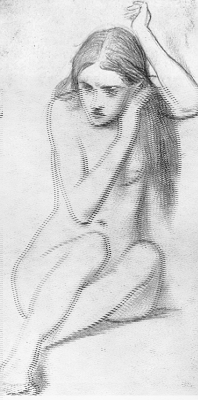
Study of the figure of the Virgin for "Ecce Ancilla Domini!"
Can you imagine the Virgin, or Christina Rossetti,
like this? |
| ¡@ The influence of patrons on DGR (see
below for examples)
"It has been suggested that the subjects and handling of Rossetti's
late paintings were influenced by his patrons' desires; and the artist
has been characterized as 'a prisoner, albeit a willing prisoner, of his
own business arrangements.' ...
Because he did not exhibit at the Royal Academy or London galleries,
Rossetti was dependent on a small group of picture buyers, mostly from
the rising merchant class in provincial industrial centers.
....(164) |
"Rossetti described his patrons' taste: 'They are special men who buy
special things and lmost never effect a divergence from their limited loves.'
Leyland, for example, liked single-gigure compositions with musical instruments
in them ... Twollectors, Leyland and Graham (the two who owned the
greatest number of Rossetti's paintings), displayed his work alongside
that of Renaissance painters." (Faxon 169) |
|
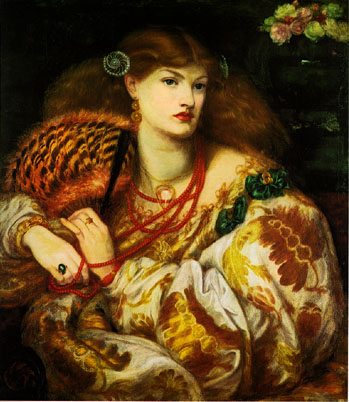
Dante Gabriel Rossetti, Monna Vanna, 1866
Oil on canvas, 35 x 34 in.
Tate Gallery, London
"Writing about the painting, Stephens said: "Monna
Vanna or The Lady with the Fan . . . has something that is evanescent
and fickle in her expression, a self-centered character revealed by
every feature, lovely as they are. . . A heart-shaped jewel of clear
white crystal is suspended on her breast, a hard, cold, colourless gem
that is significant of her soul and its influences" (Faxon 162).
*Self-possessed, self-centered, or being possessed? |
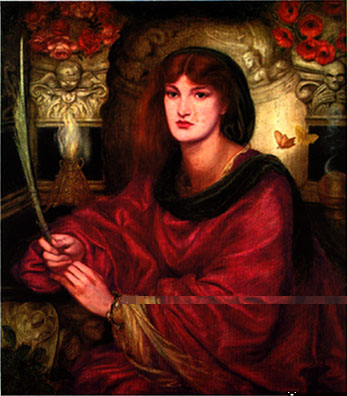
Dante Gabriel Rossetti, Sibylla Palmifera, 1866-70
(or Soul's Beauty)
Oil on canvas, 37 x 32 1/2 in.
Lady Lever Art Gallery, Port Sunlight, England
"The palm in the woman's right hand may refer to the
traditional symbol of victory, in this case symbolizing the triumph
of beauty or the soul over death; the butterflies at right are traditional
symbols of the soul."
*triumph of soul OR beauty?
**Why are these two images of Alice Wilding (another
of Rossetti's model who was a dress-maker when meeting DGR) so different? |
|
¡@
Rossetti's influence on Munch |
|
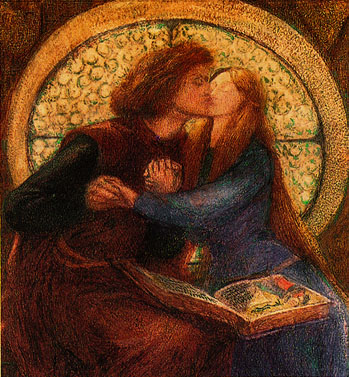
Dante Gabriel Rossetti, Detail of Paolo and Francesca
da Rimini, 1855 |
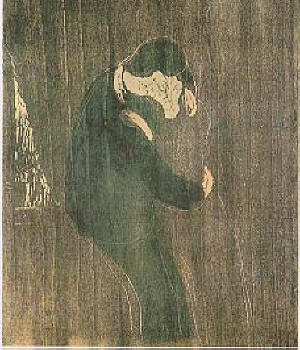
Edward Munch The Kiss, 1897
Hand-colored woodcut.
Other
paintings of Romantic love. |
|
¡@
Reference:
Faxon, Alicia Craig. Dante Gabriel Rossetti. New
York: Abreville Press, 1989.
¡@
(external) Literary Criticism Databank: Cultural Studies
Literary Criticism Databank: Cultural Studies |









